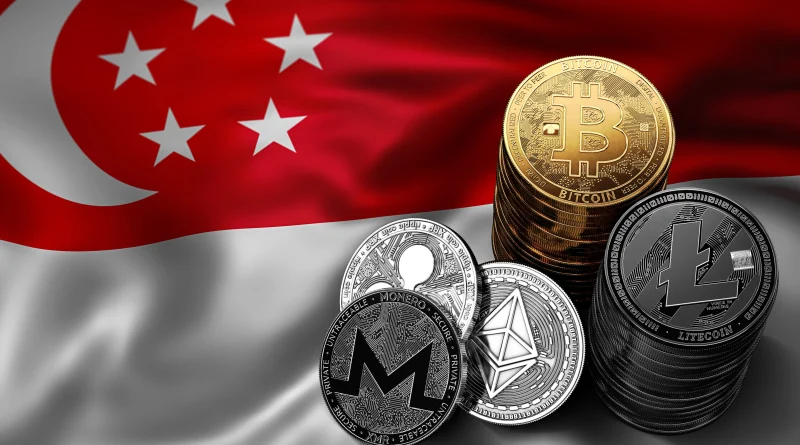Singapore’s Crypto Exodus: How Hong Kong Emerges as Asia’s New Digital Asset Hub
The Asian cryptocurrency landscape is experiencing a seismic shift as Singapore’s regulatory crackdown triggers a mass exodus of digital asset companies, while Hong Kong positions itself as the region’s new crypto-friendly destination.
Singapore’s strict DTSP licensing requirements reshape regional crypto landscape
Singapore’s Zero-Tolerance Approach Sparks Industry Exodus
Singapore’s Monetary Authority (MAS) sent shockwaves through the crypto industry with its new Digital Token Service Provider (DTSP) regulations. The “zero-tolerance” policy requires all crypto firms serving overseas clients to obtain licensing by June 30, 2025, with no transition period provided.
Key regulatory features include:
- No buffer period for compliance implementation
- Universal coverage of all digital asset service providers
- Zero tolerance policy with criminal penalties for violations
The regulations target companies operating from Singapore while serving only international clients, effectively closing regulatory loopholes that many crypto firms previously exploited. MAS clarified that licensing will be “extremely limited” for such operations, forcing most offshore-focused companies to cease operations or relocate entirely.
Major exchanges including Bitget and Bybit have already begun relocating staff out of Singapore, signaling the beginning of what industry observers call the “Great Singapore Crypto Exodus.“
Hong Kong’s comprehensive Virtual Asset Trading Platform regulatory framework
Hong Kong’s Strategic Opportunity
While Singapore tightens its grip, Hong Kong is rolling out the red carpet for displaced crypto companies. Legislative Council member Charles Mok publicly welcomed Singapore-based Web3 enterprises to relocate, offering policy support and implementation assistance.
Hong Kong’s crypto-friendly initiatives include:
- Virtual Asset Trading Platform (VATP) licensing with clear guidelines
- Stablecoin regulations providing regulatory certainty
- ETF approvals for Bitcoin and Ethereum products
- Tax incentives for qualified virtual asset activities
The city has already licensed 10 virtual asset trading platforms, including OSL Digital Securities, EXIO Limited, and Hash Blockchain Limited, demonstrating its commitment to building a comprehensive crypto ecosystem.
Regulatory Philosophy: Control vs. Innovation
The contrasting approaches reflect fundamentally different regulatory philosophies. Singapore prioritizes “risk prevention” following high-profile collapses like Three Arrows Capital and FTX, implementing strict controls to protect its financial reputation.
Hong Kong, conversely, emphasizes “controlled innovation” through its flexible compliance framework. The city allows retail participation in crypto trading while maintaining investor protection standards, attracting both institutional and retail-focused platforms.
The intensifying competition between Singapore and Hong Kong for crypto hub supremacy
Market Impact and Industry Response
The regulatory divergence is reshaping Asia’s crypto landscape. Bloomberg reports suggest Singapore maintained its crypto hub leadership in 2024 by issuing 13 new licenses, but the new DTSP requirements may reverse this trend.
Industry data shows:
- Over 1,000 Web3 companies have established operations in Hong Kong since 2022
- Hong Kong’s Cyberport hosts nearly 300 Web3 enterprises with over HK$400 million in funding
- Licensed platforms in Hong Kong reported significant trading volume increases
The New Asian Crypto Geography
This regulatory competition represents more than policy differences—it’s a fundamental reshaping of Asia’s digital asset geography. Singapore appears to be evolving toward a “compliant asset management center” focused on institutional services, while Hong Kong positions itself as an “innovation laboratory” and regional capital hub.
For crypto entrepreneurs, the choice extends beyond regulatory preferences to operational realities. Hong Kong offers greater policy flexibility and market access, while Singapore maintains stronger traditional financial infrastructure despite tighter crypto restrictions.
Asian cryptocurrency market transformation accelerates amid regulatory changes
Key Takeaways for Crypto Companies
For Singapore-based firms:
- Assess DTSP licensing requirements immediately
- Consider relocation to Hong Kong or other jurisdictions
- Evaluate compliance costs versus operational benefits
For Hong Kong opportunities:
- VATP licensing provides clear regulatory pathway
- Growing institutional and retail market access
- Favorable tax treatment for qualified activities
What’s Next for Asia’s Crypto Hub Race?
The outcome of this regulatory competition will determine Asia’s crypto leadership for years to come. While Singapore’s stricter approach may reduce systemic risks, it also risks losing innovation and talent to more welcoming jurisdictions.
Hong Kong’s window of opportunity is significant but not unlimited. The city must continue building infrastructure, clarifying regulations, and maintaining its competitive edge to capitalize on Singapore’s restrictive turn.
Conclusion: The Flow of Digital Innovation
The crypto industry’s nomadic nature means companies will continue gravitating toward jurisdictions offering the optimal balance of regulatory clarity, market access, and operational freedom. Singapore’s choice to “establish rules” while Hong Kong opts to “attract flow” illustrates the diverse pathways available for crypto regulation.
As the dust settles from Singapore’s regulatory earthquake, Hong Kong’s opportunity to emerge as Asia’s premier crypto destination has never been clearer. The true test will be whether Hong Kong can maintain its welcoming stance while building the infrastructure necessary to support sustainable crypto innovation.



